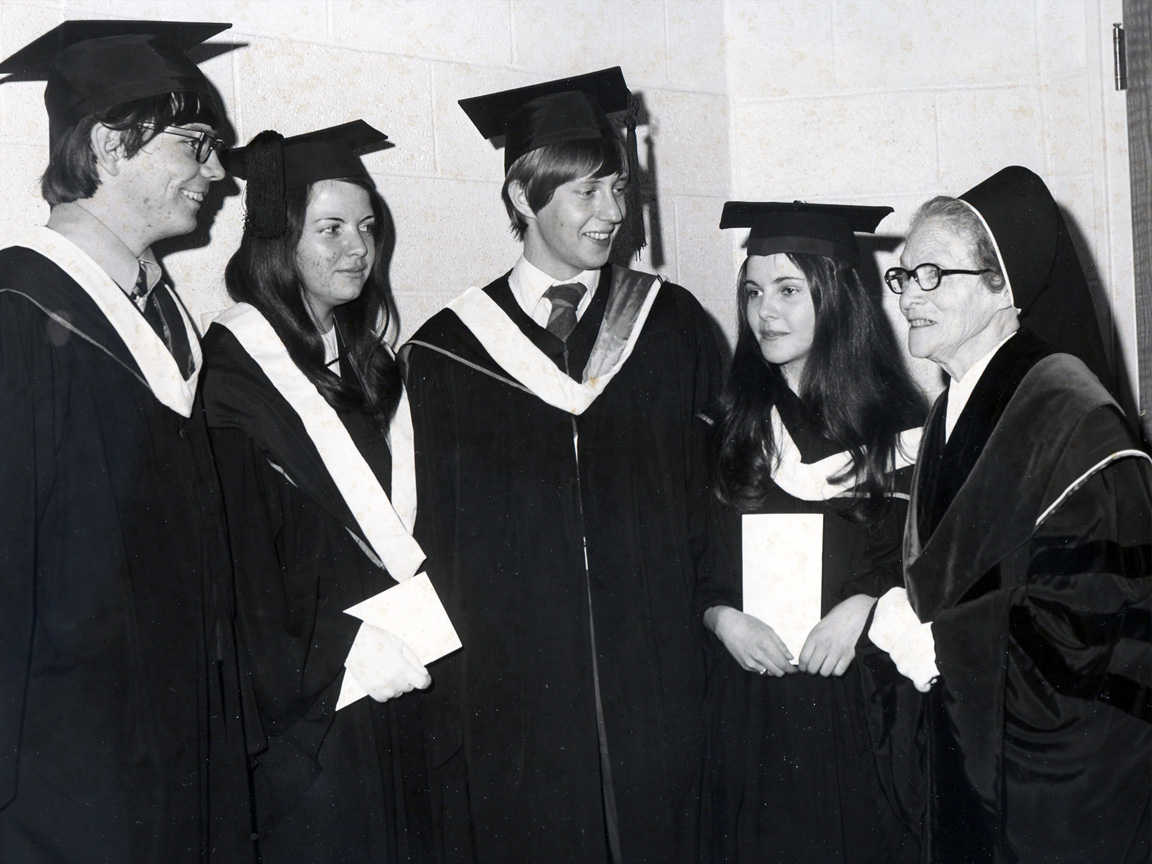Preserving Cultural Records
Archivists and librarians are unsung heroes in our civilization. Without institutions to keep the records, images and sounds of the past, where would we be? Perpetually starting over, instead of building on the foundations our predecessors laid down. One Nova Scotian who stood out in the archival field was Sister Margaret Beaton.
Margaret Isabella Beaton grew up in Inverness County. All lifelong she placed a high value on education. At 19, she entered the religious community of the Congregation of Notre Dame in Montreal. In her forties, she obtained a Bachelor's and then a Master's degree. Soon after, Sister Margaret returned to Cape Breton to take charge of Holy Angels High School in Sydney. She built up its library collection and the experience spurred her on to attain a Master's in Library Science when she was in her mid-fifties. When Sister Margaret came back to Cape Breton in 1955, it was to become the first full-time librarian at the Xavier Junior College in Sydney. (Xavier was part of St. Francis Xavier University; it later became the Cape Breton University.)
Sister Margaret turned the Xavier College library into something special. In addition to books, she began to acquire archival material pertaining to the history of Cape Breton Island. She could see that much was being lost for lack of a place to house such materials. The collection grew steadily throughout the 1960s, once Islanders realized there finally was a place to donate valuable documents. Sister Margaret dubbed the collection Cape Bretoniana. It became her fulltime profession to safeguard it and make it grow.
Having grown up in Inverness County, Sister Beaton was steeped in Gaelic culture and was a fluent speaker of the language. She collected a wealth of Gaelic materials that would otherwise have been lost. She also made sure that the archives covered all other cultural groups on the Island, such as the Italians, Lebanese, Mi'kmaq and Polish.
Sister Margaret Beaton's life and work were cut short by a car accident. Not long after, to honour all she had accomplished to preserve culture and history, the collection she called Cape Bretoniana was re-named in her honour the Beaton Institute of Cape Breton Studies.
